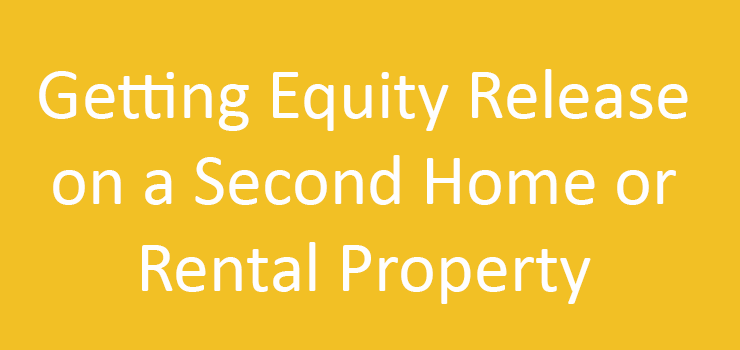If one would like to raise funds for a project or to enhance their retirement benefits, they can choose to get equity release on a second home. This is not as common as equity release schemes on a main residence, nevertheless a couple of lenders will assist in this area. Companies such as LV= have a second home or even a holiday home that you can take a release of equity on. Constraints do exist since this is type of scheme is not the norm, such as a lower loan-to-value is applied, meaning that you can’t borrow as much as conventional equity release schemes. This, effectively, is ensuring the reduction in the lenders future risk.
Up until recently, and still under review was the New Life Mortgage Landlord equity release scheme. This scheme was particularly helpful if you had a 2nd property which was being let out under a short hold tenancy agreement. Other pre-requisites were that the rental income must have covered the interest being charged by New Life Mortgages and you are over 55. If all this criteria was met then the New Life Mortgages equity release on a second home scheme could have been made available.
In case you prefer to pay monthly interest on such a loan, so that the amount borrowed remains the same, one can choose monthly interest payments, or look for an interest only buy-to-let mortgage, which can run up until they are 90 years old. The interest rates are variable and attractive, and even some of the schemes come with free legal or valuation packages. All one needs to do is enquire so as to save the maximum possible in fees. On the other hand, if you do not like making monthly payments, you can choose a second home or landlord lifetime mortgage roll-up scheme from the likes of LV=.
Keep in mind that not all products are discussed here, only those that are currently known to offer second home lifetime mortgages. There are other choices on the market that might work if you do not have a second home or wish to use your primary home to buy a second home.
Benefiting from Lifetime Mortgage Schemes
The main benefit with a lifetime mortgage is that it allows you to release some equity from a second home or your investment property without the need to make monthly payments, and then the interest is added on to the loan, with the balance growing each year. The loans along with all the accrued interest are repaid on the eventual property sale, which happens if you die if you do not choose to sell the property earlier.
Other Reasons to Gain Help
The talk has been about using a second home you already have to gain a lifetime mortgage. If you do not have a second home there is a potential that you can obtain this type of equity release in order to buy a second holiday home. By doing this you gain a place you and your family can enjoy for your life, which can also be a lot of fun for those holidays you always wished you could take.
Be Wary of Choice
While everything above sounds like a great idea and you certainly have options, you still want to be wary of the choices you make. The second home would need to be resold to pay the loan. If the home value does not increase it can take away from the inheritance. Above everything else you might enter into an agreement that is suddenly not as affordable as you thought particularly with the interest only scheme.
If you are using it on a second property that you let out the main factor is keeping someone living in that property. If it goes empty you could be in a situation where you do not have the interest only payment. These are just a couple of things to think about and should not end your search for the perfect retirement loan, just help you look at it with open eyes.
An equity release on a second home or proprietor property comes with a couple of advantages. Some of them are that you can offset the interest on the loan against rental payments for tax reasons. The other advantage is that you do not make monthly repayments and retain the entire rental income, while maintaining ownership of the property. This plan is perfect for retirees and people aged above 55, and one can transfer the loan to a new property owner.

